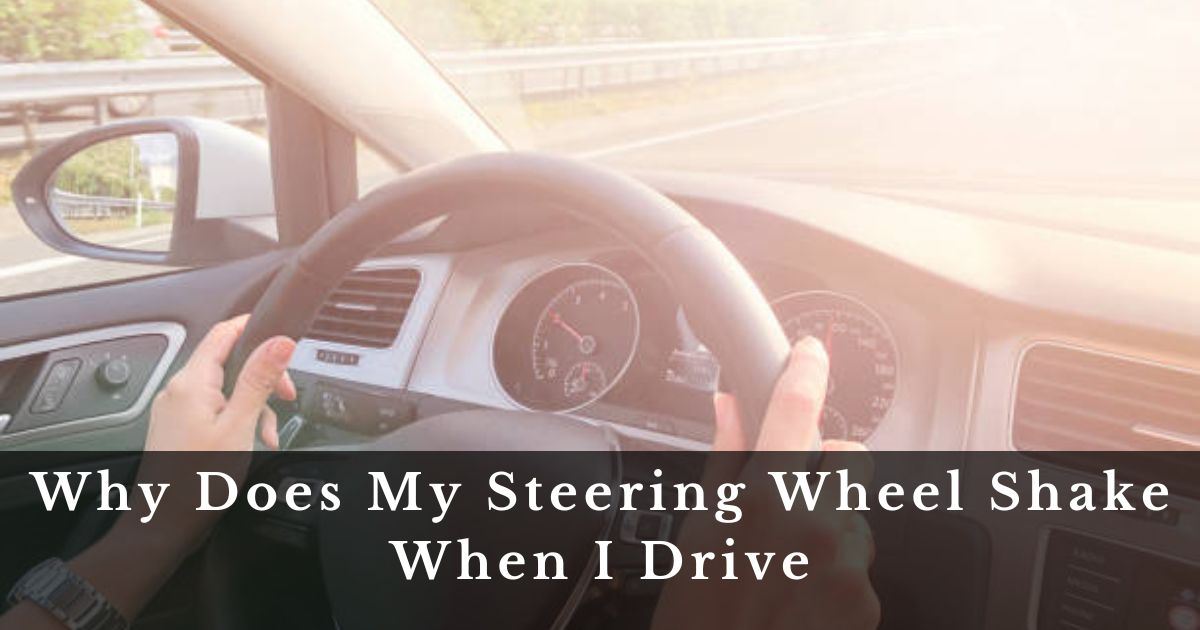Why does my steering wheel shake when I drive, If you’ve felt your steering wheel shake when you drive, you’re not the only one. This shaky feeling might mean there’s something wrong with your car. Let’s look at why this happens and how to fix it.
What is Steering Wheel Shaking?
Have you ever felt your steering wheel vibrating or shaking while you’re driving? It can be quite unsettling, right? This shaking sensation is often a sign that something isn’t quite right with your car.
Common Causes of Steering Wheel Shaking
Several factors can contribute to your steering wheel shaking, ranging from minor issues to more serious problems. Understanding these causes can help you address the issue effectively.
Tire Issues
Uneven Tire Wear
One of the most common reasons for steering wheel shaking is uneven tire wear. Over time, tires can wear out unevenly due to factors like improper inflation or misalignment, leading to vibrations in the steering wheel.
Tire Balance
Another culprit could be unbalanced tires. If your tires are not properly balanced, it can cause the steering wheel to shake, especially at higher speeds. Regular tire balancing can help prevent this issue.
Brake Problems
Warped Brake Rotors
Warped or damaged brake rotors can also cause steering wheel shaking. When you apply the brakes, the uneven surface of the rotors can lead to vibrations that are felt in the steering wheel.
Brake Caliper Issues
Faulty brake calipers can cause the brakes to drag, leading to overheating and warping of the brake rotors. This can result in steering wheel shaking and should be addressed promptly.
Suspension System
Worn Out Shock Absorbers
Worn-out shock absorbers can’t effectively control the movement of your car’s suspension, leading to excessive bouncing and shaking. Replacing old shock absorbers can help reduce steering wheel vibrations.
Loose or Damaged Suspension Components
Loose or damaged suspension components, such as bushings or ball joints, can also contribute to steering wheel shaking. A thorough inspection of the suspension system is necessary to identify and fix these issues.
Wheel Alignment
Misaligned Wheels
Misaligned wheels can cause your car to pull to one side and result in steering wheel shaking. Regular wheel alignments can help ensure that your wheels are properly aligned, reducing vibrations.
Caster and Camber Issues
Issues with caster and camber angles can also lead to steering wheel shaking. These angles affect how your wheels make contact with the road, and improper settings can cause vibrations.
Other Potential Causes
Steering System Problems
Issues with the steering system, such as loose or worn-out steering components, can also cause steering wheel shaking. It’s essential to have the steering system inspected regularly to avoid these problems.
Engine Issues
In some cases, engine problems like misfires or idling issues can transmit vibrations to the steering wheel. If you suspect an engine-related issue, it’s to have it checked by a professional mechanic.
How to Fix Steering Wheel Shaking
Check and Inflate Tires
Regularly checking and inflating your tires to the recommended pressure can help prevent steering wheel shaking due to tire issues.
Brake Inspection and Repair
Regular brake inspections and timely repairs can prevent brake-related steering wheel shaking. This includes checking and replacing warped brake rotors and faulty brake calipers.
Suspension Check and Repair
Inspecting and repairing worn-out or damaged suspension components can help reduce steering wheel vibrations caused by suspension problems.
Wheel Alignment
Regular wheel alignments can ensure that your wheels are properly aligned, reducing the risk of steering wheel shaking.
Steering wheel shaking can be caused by a variety of issues, from tire problems to brake and suspension issues. Identifying and addressing these issues promptly can help ensure a smoother and safer driving experience. Regular maintenance and inspections are key to preventing steering wheel shaking and keeping your car in top condition.
FAQs
What causes steering wheel shaking at high speeds?
Steering wheel shaking at high speeds is often caused by tire issues, brake problems, or wheel alignment issues.
Can low tire pressure cause steering wheel shaking?
Yes, low tire pressure can lead to uneven tire wear and steering wheel shaking.
How often should I check my tire pressure?
It’s a good idea to check your tire pressure at least once a month or before long trips.
Do I need to replace both front tires if one is worn out?
It’s recommended to replace both front tires if one is significantly more worn out than the other to maintain balanced handling.
How can I tell if my brake rotors are warped?
You may notice vibrations or pulsating sensations when braking, and a visual inspection may reveal uneven wear on the brake rotor surface.



